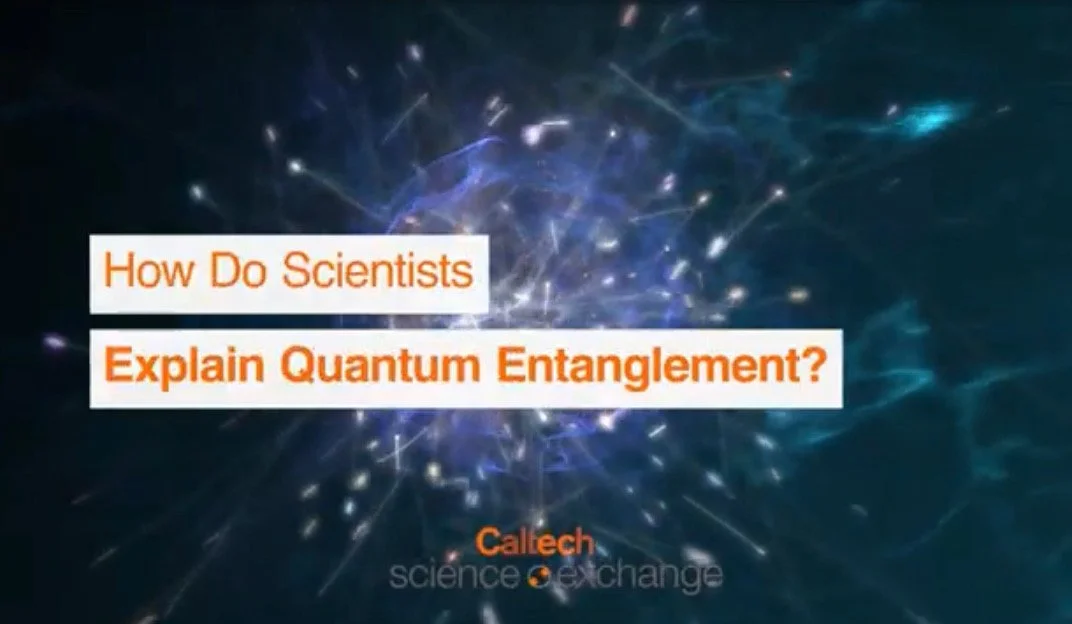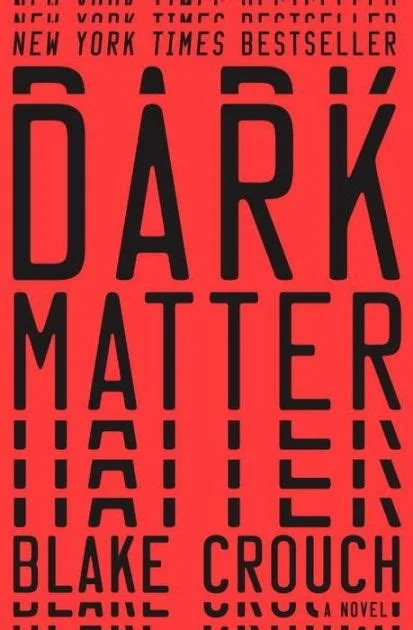Who are you entangled with?
Quantum physics has fascinated me for decades. As a non-quantum scientist, wrapping my arms around quantum concepts has been an intriguing challenge. Watching movies and TV shows, and reading books experimenting with the concepts help.
The word entanglement conjures images of sailing with my husband on our 14’ Hobie Cat. We’re back on Lake Mendota in Madison, Wisconsin. Our bright banana-yellow hulls and rainbow-colored sail zigzags across the lake on a warm summer afternoon.
One moment we see puffs of wind 50 yards out. I scooch to the back of the trampoline between the hulls so we won’t capsize because a pontoon tip dips below an incoming wave. Either I was too late, or a strong wind caught us sideways. As if in slow motion, the tramp slants vertical and I fall off the boat sinking into a bed of kelp.
Panic sets in as my arms flail trying to swim up and out of the slippery forest. From underwater, I see patches of blue sky reflecting sunlight on the surface. But I can’t get untangled from the long, slimy, green arms surrounding me. My panicked self entangled with kelp arms and different scenarios running through my head.
Entanglement is an entwinedness with other people and objects, space and time. We can also look at entanglements between our past, present, and future selves. We’re entangled with our memories. They can be recast. Memories aren’t frozen. They change every time we take them out and look at them. Our experiences change us as people over time. That’s helpful when a memory is painful. The energy around the memory has a lesson if you step back far enough, and then the story you tell changes.
When I examine my stroke memories now, I see how my strokes presented an opportunity for a richer inner life. The times when I couldn’t get the words out of my head. I learned to stop trying so hard, to be patient, to relax, like when I was stuck in the slimy kelp forest.
When preparing for this month’s newsletter, I recalled reading Dark Matter by Blake Crouch. (I'm still waiting for the movie, now Apple TV+ series to come out). Without giving the story away — imagine there are alternative universes for every decision you make. It’s a science-fiction thriller about choices, paths not taken, and in the thriller genre — what lengths will you go to, to claim the life of your dreams?
Dark Matter by Blake Crouch
By definition — entanglement involves two particles that seem intimately linked. (Imagine identical twins living in different parts of the world separated at birth. Both love wearing black hats, hate strawberries, and ride motorcycles). Albert Einstein referred to entanglement as, “spooky at a distance.” I’d suggest that we each have our own “spooky at a distance” relationship with our memories. If you can imagine replaying a memory where your past, present, and future selves are viewing the memory at the same time. Each with their own director’s cut commentary.
In Dark Matter, the primary entanglement is between the protagonist’s different selves in different multiverses. But also the entanglement with the important people in his life. One of my favorite quotes:
“I can’t help thinking that we’re more than the sum total of our choices, that all the paths we might have taken factor somehow into the math of our identity.”
— Jason Dessen, in Dark Matter
Possibilities not taken have a presence. Pause for a moment and search your memory banks for a decision you made with multiple options or at least more than one. Like choosing a partner, where to go to school, or where to live. Can you feel that moment when there were many possibilities? Whether you were looking forward to them or were afraid of them?
Another tenant of quantum physics is wave-particle duality. Think of possibilities as a wave, until a choice is made, then it collapses into a particular choice, a particle. Like being in front of a breakfast buffet with an empty plate. You walk along checking out your options, but until you pick that salad or fried chicken— it’s just an option, a wave of possibilities. Or listen to Dominic Walliman explain quantum physics in his TEDxEastVan Quantum Physics for 7 Year Olds.
Quantum physics helps explains our entanglements with each other, especially those we love. We sense when our partner is off, we finish each other’s sentences, we read each other’s minds. The choices we make affect others, including our partners and our future selves. We exist as a bundle of choices.
Quantum mechanics upended Newtonian physics, all apple-falls-from-the-tree-gravity focused. Now science has shown that non-physical influences impact particles (like the twins) instantly, faster than the speed of light (Newtonian). It was a bit unsettling when I grew up with Newtonian physics. But I find quantum physics intriguing and it’s a part of our lives whether we know how it works or not; from lasers to nuclear power plants, and silicon chips in our computers and devices to MRI machines.
Psychology Today: Entanglement And Innovation In An Instant
Photo Source: Pixabay
As for how I untangled myself from the long, slimy, green kelp arms. I let myself sink to the bottom of the lake. Pushed off the muck as best I could. My arms extended overhead and like a Beth-rocket burst through the surface of the water searching for my husband like a wet puppy. We righted the boat and started sailing, avoiding the kelp monster part of the lake.
For more exploration of fun quantum physics-inspired movie and TV show references refer to:
Lost - past, present, and future lives of surviving airline passengers are dramatically intertwined after crashlanding on a mysterious island
Fringe - an F.B.I. agent is forced to work with an institutionalized scientist and his son in order to rationalize a brewing storm of unexplained phenomena
Stranger Things - when a young boy disappears, his mother, a police chief, and his friends must confront terrifying supernatural forces in order to get him back from the upside world
Inception - a thief who steals corporate secrets through the use of dream-sharing technology is given the inverse task of planting an idea into the mind of a C.E.O., but his tragic past may doom the project and his team to disaster
*And for those who want to learn more about Schröder’s Cat and particles on Andromeda, and other science-nerd fodder, there are plenty of YouTube videos to peruse.
Please leave a comment below and if you enjoyed this post, I invite you to subscribe to my thought echoes newsletter.




